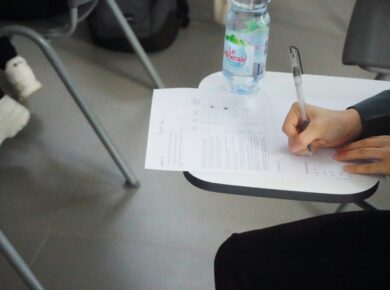Writing good questions for teaching and writing books is a difficult task. When you are reading the taxonomic theory by Bloom, you will understand that it provides a vital framework for educators to use in higher reasoning.
On a hierarchical level, Bloom explains taxonomic theory in a way that can assist teachers in designing performance tasks, crafting questions for conferring with students, and providing feedback on the work being done by students.
This cognitive level is divided into different levels, with Keywords that each of them exemplifies.

Questions for critical thinking
The reasoning is developed for the classroom to develop all levels of thinking within the cognitive domain.
There has been improved attention to detail, increased comprehension and expanded problem-solving skills through the cognitive domain.
Various keywords are used as guides to restructuring questions and tasks. You can use assessment to help guide culminating projects.
This article attempts to write good questions. You can read more similar posts on our reading and writing page of the site.
Six Levels of Cognitive Domain
- Knowledge
- Comprehension
- Application
- Analysis
- Synthesis
- Evaluation
Bloom level 1: Knowledge
This exhibits memory of previously learned material by recalling fundamental facts, terms, basic concepts and answers about the selection.
Keywords
These are as follows: Who, what, why, when, omit, where, which, choose, find, how, define, label, show, spell, list, match, name, relate, tell, recall, select, etc.
Questions
- What is…?
- Can you select?
- Where is…?
- When did…happen?
- Who were the main…?
- Which one…?
- Why did…?
- How would you describe…?
Assessments
- Match characters and the names of the pictures with others.
- Define nouns.
- List five types of adjectives.
- Spell the word “Biology”.
- Arrange the pictures in sequential order.
- Recall the story you were taught yesterday.
Bloom’s Level II: Comprehension
It demonstrates an understanding of facts and ideas by organising, comparing, translating, interpreting, describing, explaining and stating main ideas.
Keywords
Compare, contrast, demonstrate, interpret, illustrate, outline, relate, rephrase, translate, summarise, explain, show, classify, etc.
Questions
- How would you classify the type of…?
- How would you compare… or contrast…?
- How will you state… in your own words…?
- How would you rephrase the meaning?
- What facts or ideas show…?
- What is the main idea of…?
- Which statements support…?
- Can you explain what is happening…?
- How would you summarise…?
Assessments
- Explain the concept of economics.
- Draw a picture of a man.
- Illustrate the texts in the storybook.
- Predict the storybook you are reading.
- Translate chapter four of the book into another language.
- Summarise paragraph 2.
- Construct a pictorial timeline that summarises what happens in the story.
Bloom’s Level III: Application
This level solves problems in view situations by applying acquired knowledge, facts, techniques and rules in a different or new way.
Keywords
Apply, build, choose, construct, develop, interview, make, use of, organise experiment, plan, select, utilise, model, identify…
Questions
- How would you use…?
- How would you solve…using what you’ve learned…?
- What examples can you find to…?
- What approach would you use to…?
- Can you make use of the facts to…?
- What questions would you ask during an interview?
Assessments
- Classify the characters s humans, animals or things.
- Transfer a main character to a new setting.
- Select a meal that one of the main characters would enjoy eating: plan a menu and method of serving it.
- Think of a happening in your area and write about it.
- Give examples of people whom the students have the same problems as the characters in the story.
Bloom’s Level IV: Analysis
It examines and breaks information into parts by identifying motives or causes. You must make inferences and find evidence to support generalisations.
Keywords
Analyse, categorise, classify, compare, contrast, dissect, divide, examine, inspect, simplify, survey, test for, distinguish, list, distinction, theme, relationships, function, motive, inference, assumption, conclusion, take part in, etc.
Questions
- What are the parts or features of…?
- How is…related to…?
- Why do you think…?
- What is the theme…?
- What motive is there…?
- Can you list the parts…?
- What inference can you make…?
- How would you classify/categorise…?
- What evidence can you find…?
- Can you make a distinction between…?
Assessments
- Identify five features of money.
- Distinguish what could happen from what couldn’t happen in the story in real life.
- Select four oranges from those in the basket.
- Differentiate fact from opinion.
- Compare and/or contrast two of the main characters.
- Select the major characters from the main characters of the story.
BBloom’sLevel V. Synthesis
In writing good questions, compile information together in a different way by combining elements in a new pattern or proposing alternative solutions.
Keywords
Build, choose, combine, compile, compose, construct, create, design, develop, estimate, formulate, imagine, invent, make, originate, plan, predict, propose, solve, solution, suppose, discuss, modify, change, original, improve, adapt, minimise, maximise, theorise, elaborate, happen, delete, etc.
Questions
- What changes would you make to solve…?
- What would happen if…?
- Can you elaborate on the reason…?
- Can you propose an alternative…?
- Can you invent…?
- How would you adapt…to create a different…?
- Suppose you could_____what would you do…?
- What could be done to minimise or maximise…?
- Can you construct a model that would change…?
- How is ______related to…?
- What ideas justify…?
- What conclusions can you draw?
Assessments
- Create a story of your choice and present it to your teacher.
- Write three short stories and submit them to your teacher.
- Create a promotional copy.
- Use your opinion to write a good story.
- Restructure in another way the storybook you have ever read in life.
- Compose a poem and music and submit them to your teacher.
- Create an original piece of information to make your society better.
- Write in your language five types of information you need to understand.
Bloom’s Level VI: Evaluation
It presents and defends opinions by making judgments about information, the validity of ideas or the quality of work based on a set of criteria.
Keywords
Award, choose, conclude, criteria, decide, defend, determine, dispute, evaluate, judge, justify, measure, compare, mark, rate, recommend, rule on, select, agree, appraise, prioritise, opinion, interpret, explain, support, importance, criteria, prove, disprove, assess, influence, perceive, value, estimate, deduct, etc.
Questions
- Do you agree with the actions/outcome…?
- What is your opinion of…?
- How would you prove/disprove…?
- Can you assess the value or importance of…?
- Would it be better if…?
- Why did they (the character) choose…?
- How would you rate the…?
- How would you evaluate…?
- How could you determine…?
- How would you explain…?
- How would you prioritise the facts…?
- What data was used to conclude…?
- How would you cite to defend the actions…?
Assessments
- Decide whether you will explain this or discuss it in a better way.
- Judge whether or not a character should have acted in a particular way and way.
- Decide whether you will write the project or the assignment, and give me feedback.









